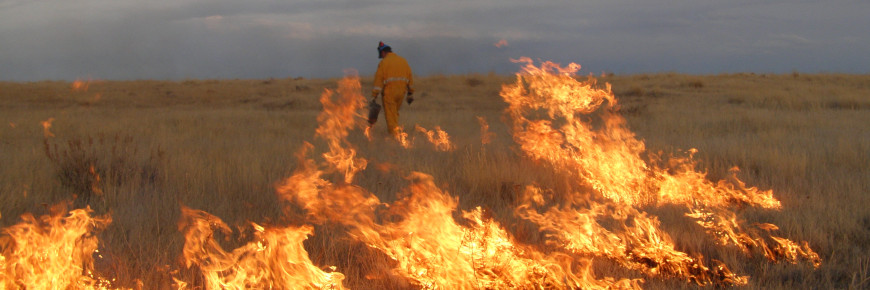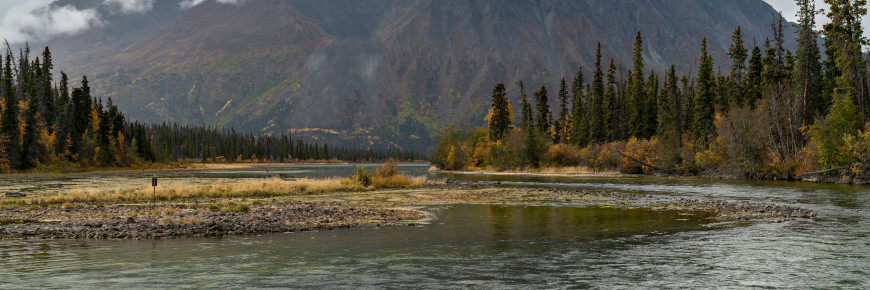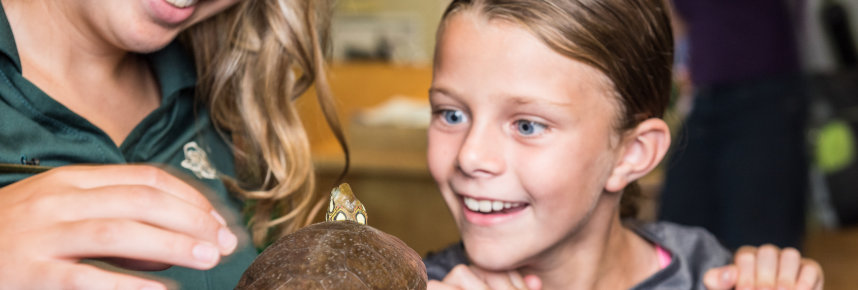
Parks Canada merchandise – your purchase helps conservation!
Parks Canada official merchandise was created as a meaningful outlet for expressing Canadians' pride and support for their country’s incredible natural spaces and heritage places.
There are multiple ways Canadians and international visitors can purchase Parks Canada official merchandise: online through the Parks Canada Shop, or in stores owned and managed by Parks Canada or other retailers.
Since 2017, Parks Canada has reinvested 100% of its profits from the sale of official merchandise into programs and conservation projects at Parks Canada administered places. Here are some of these projects.
Tracking the Porcupine Caribou herd in Vuntut National Park (2024)

In 2024, online purchases support CaribouRANGE, a collaborative program with Vuntut Gwitchin First Nation that will monitor changes in the Porcupine Caribou herd’s summer range in Vuntut National Park. The herd’s summer range provides high quality food and escape from insects. Understanding the condition of their summer range and how it may change with a warming climate is essential for effective management. The project will monitor length of the snow season, snow depth, permafrost and soil temperatures, as well as the length of the growing season, rainfall, and vegetation cover. This data will inform management of the caribou herd that is central to the ecology of the north Yukon and to First Nation and Inuvialuit culture.
Keeping mountain goats off the highway

Location: Mount Revelstoke and Glacier National Parks, British Columbia
Project year supported: 2023
Project objective: reduce mountain goat mortality on the Trans-Canada highway.
Method: to discourage mountain goats from standing on the highway to lick salt, Parks Canada placed salt intended for animal consumption in safer locations along their usual paths and off the highway (“diversionary licks”).
Outcome and how the Parks Canada Shop’s online purchases contributed
Allowed Parks Canada employees to fly to otherwise inaccessible remote locations, that were suspected to be natural mineral licks for goats, to:
- install remote cameras to detect whether goats are using these locations
- collect and analyze soil samples from natural licks to determine their composition
- use natural mineral lick composition to decide how to tailor “diversionary licks” to the natural soil composition found in these remote locations
Learn more about this work
Understanding sharks

Location: Gulf Islands National Park Reserve, British Columbia
Project year supported: 2022
Project objective: understand nearshore biodiversity and the overall ecosystem health in the critical habitat of Southern Resident Killer Whales.
Method: deploying a baited remote underwater video camera to analyse the content.
Outcomes and how Parks Canada Shop online purchases contributed
- Hired 2 students to analyse the footage from the baited remote underwater video camera
- 100 species were identified in the area, including key species within the Southern Resident Killer Whales' food web
Learn more about this work
Sharing the waters with belugas

Location: Saguenay–St. Lawrence Marine Park, Quebec
Project year supported: 2021
Project objective: to better understand the beluga’s critical habitat in order to establish conservation measures.
Method: from the shore, Parks Canada researchers and their partners observed belugas, an endangered species, to study:
- their eating, socializing and resting habits
- pleasure boat and ship traffic in the area
Outcomes and how Parks Canada Shop online purchases contributed
- Implemented protective measures for the recovery of St. Lawrence belugas, including the creation of a tranquillity zone closed to summer navigation in Sainte-Marguerite Bay: the presence of boats in the bay has fallen from 40% (before 2018) to less than 5% since 2022
- Continued research to define beluga whale use of various sectors of the marine park
- Developed and implemented awareness-raising efforts
Learn more about this work
Fire for fauna

Location: Grasslands National Park, Saskatchewan
Project year supported: 2020
Project objective: planned prescribed fires and monitoring of the species to which it provides ecological benefits.
Method: prescribed fires are planned by teams of trained specialists at Parks Canada and other organizations and reviewed by external experts. Throughout the process, prescribed fires are closely supervised to ensure safety.
Outcomes and how Parks Canada Shop online purchases contributed
- Restored grassland habitat for wildlife species including species at risk (black-tailed prairie dog, greater sage-grouse, Sprague’s pipit and chestnut-collared longspur)
- Enhanced native plant seed production and growth
- Reduced invasive plant species
- Reduced highly flammable grass that contribute to uncontrollable wildfires
Learn more about this work
Find out more about conservation projects supported by the Parks Canada Shop.
- Date modified :

